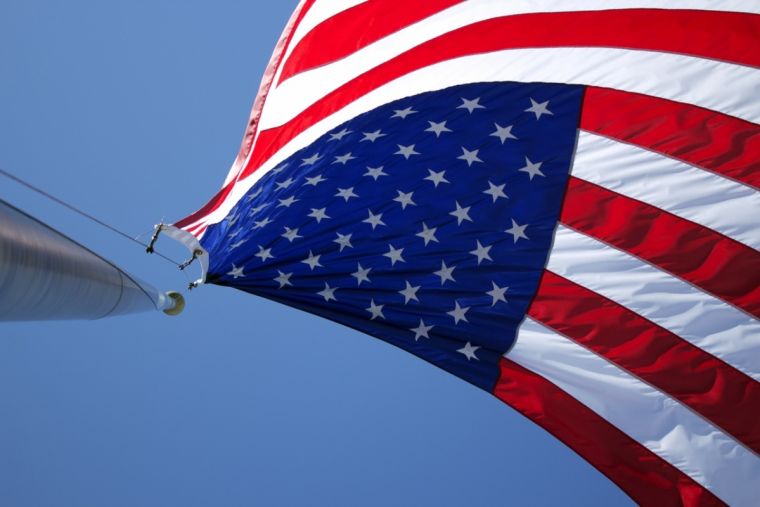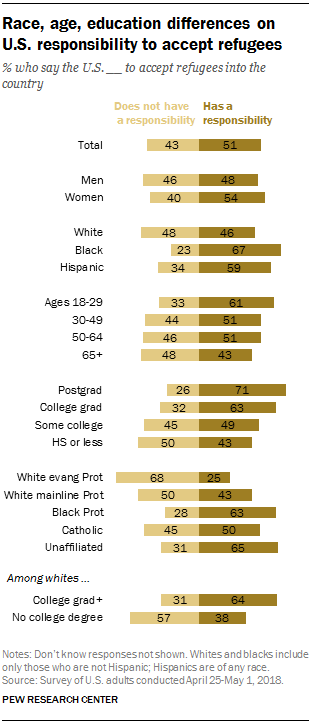White evangelicals are the most likely to say US shouldn't welcome refugees
Of all social demographics in the US, white evangelical Protestants are the most likely to say that the US does not have an obligation to welcome refugees.

The study released by Pew Research Center on Thursday revealed that more than two thirds (68 per cent) of white evangelical Protestants said that America has no responsibility to accept refugees.
Half (50 per cent) of white mainline Protestants said the same, but otherwise religious groups were more likely to say the opposite. Most (63 per cent) black Protestants said the US did have the responsibility, along with 50 per cent of Catholics and 65 per cent of religiously unaffiliated adults.

A minority of Catholics (45 per cent), black Protestants (28 per cent) and the unaffiliated (31 per cent) agreed with most white evangelicals that the US had not obligation to protect refugees. A minority of white respondents (46 per cent) said there was a responsibility, in contrast with most black (67 per cent) and Hispanic (59 per cent) respondents.
Across all US social groups measured, 51 per cent said the US should support refugees, 43 per cent disagreed. Youth and education positively correlated with a conviction to support refugees while older, less educated demographics were more likely to say the opposite. Matching typical party lines, most Democrats (74 per cent) said the country must welcome refugees, and most Republicans said it shouldn't (68 per cent).
It comes as the Economist revealed last month that the US, under the Trump administration, was set to welcome fewer refugees in 2018 than in any year since 1980.
Despite white evangelical reluctance to welcome refugees, several Christian leaders and groups have urged it as a moral priority. In February this year several US Christian leaders from various denominations united in an ad demanding the protection of refugees. In January the Christian refugee resettlement agency World Relief publicly damned Trump's infamous 'travel ban' a year after it was first executed. The group called it a 'net loss' that hurt persecuted Christians amongst thousands of other refugees in need.











